Eight members of the Stanford community, including faculty, staff, and students, are winners of the Cuthbertson, Dinkelspiel, and Gores awards. Presented each spring, the university awards recognize Stanford community members for their excellence in teaching, distinguished service, and academic achievement.
Provost Jenny Martinez will present the awards at Stanford’s 133rd Commencement ceremony on Sunday, June 16, at Stanford Stadium.
Following are this year’s winners.
Kenneth M. Cuthbertson Award winner
The Kenneth M. Cuthbertson Award is open to all members of the Stanford community and recognizes extraordinary contributions to the achievement of university goals.
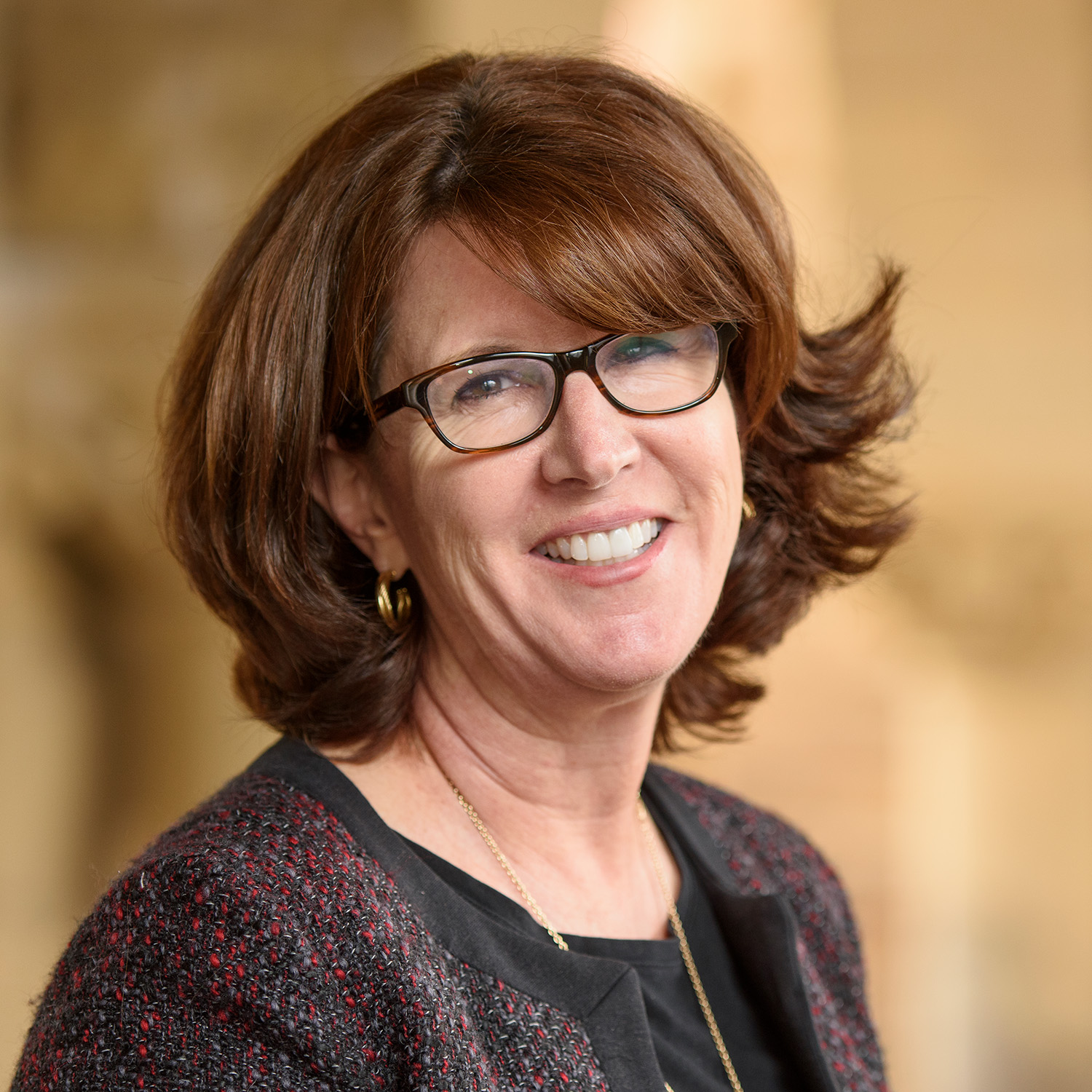
Megan Pierson | Linda A. Cicero / Stanford News Service
Megan Pierson is chief of staff to the president and secretary of the Board of Trustees, and previously served as senior associate provost for faculty affairs and senior university counsel. She is recognized for years of unwavering dedication to Stanford’s mission and her indispensable support navigating leadership transitions. She is also commended for the respect she shows for her colleagues, her collaborative spirit, gracefulness, and deep commitment to integrity, transparency, empathy, and community, and for her exceptional contributions and uncommon ingenuity in service to the university.
Lloyd W. Dinkelspiel Award winners
The Lloyd W. Dinkelspiel Award recognizes distinctive and exceptional contributions to undergraduate education or the quality of student life.
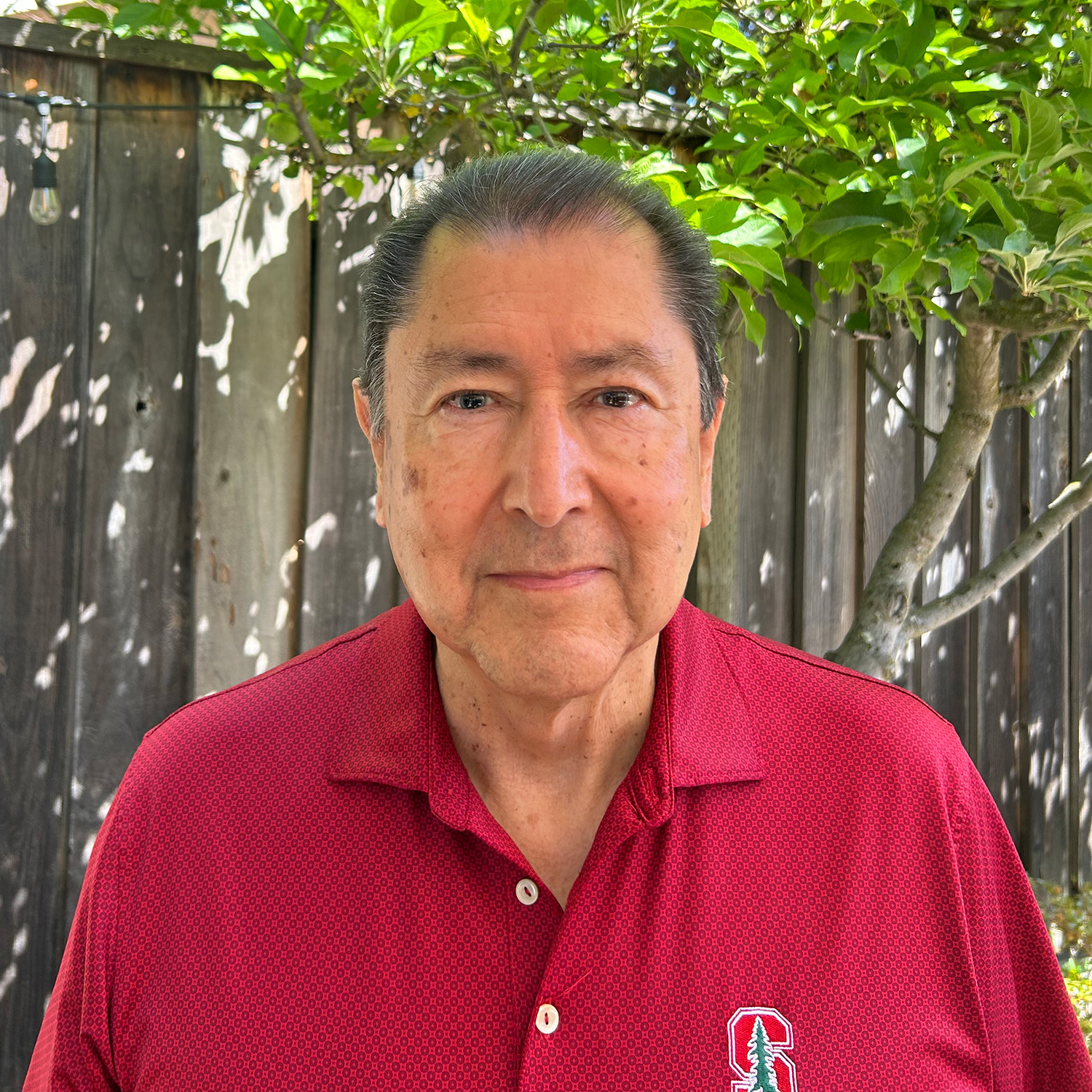
Alejandro Martinez | Courtesy Alejandro Martinez
Alejandro Martinez is executive director of threat assessment. He is recognized for his decades of dedication to undergraduate mental health and well-being and promoting a culture of caring, and removing barriers to access to mental health services. He also helped lead the implementation of Question, Persuade, Refer suicide intervention trainings; consulted in crisis response and case management of undergraduate student issues; and advised and mentored staff and guided student staffers at the Bridge Peer Counseling Center, enabling them to provide high-quality, critical mental health support to students. He is also recognized for inspiring colleagues with his genuine commitment to service and creating an inclusive, safe environment for students.
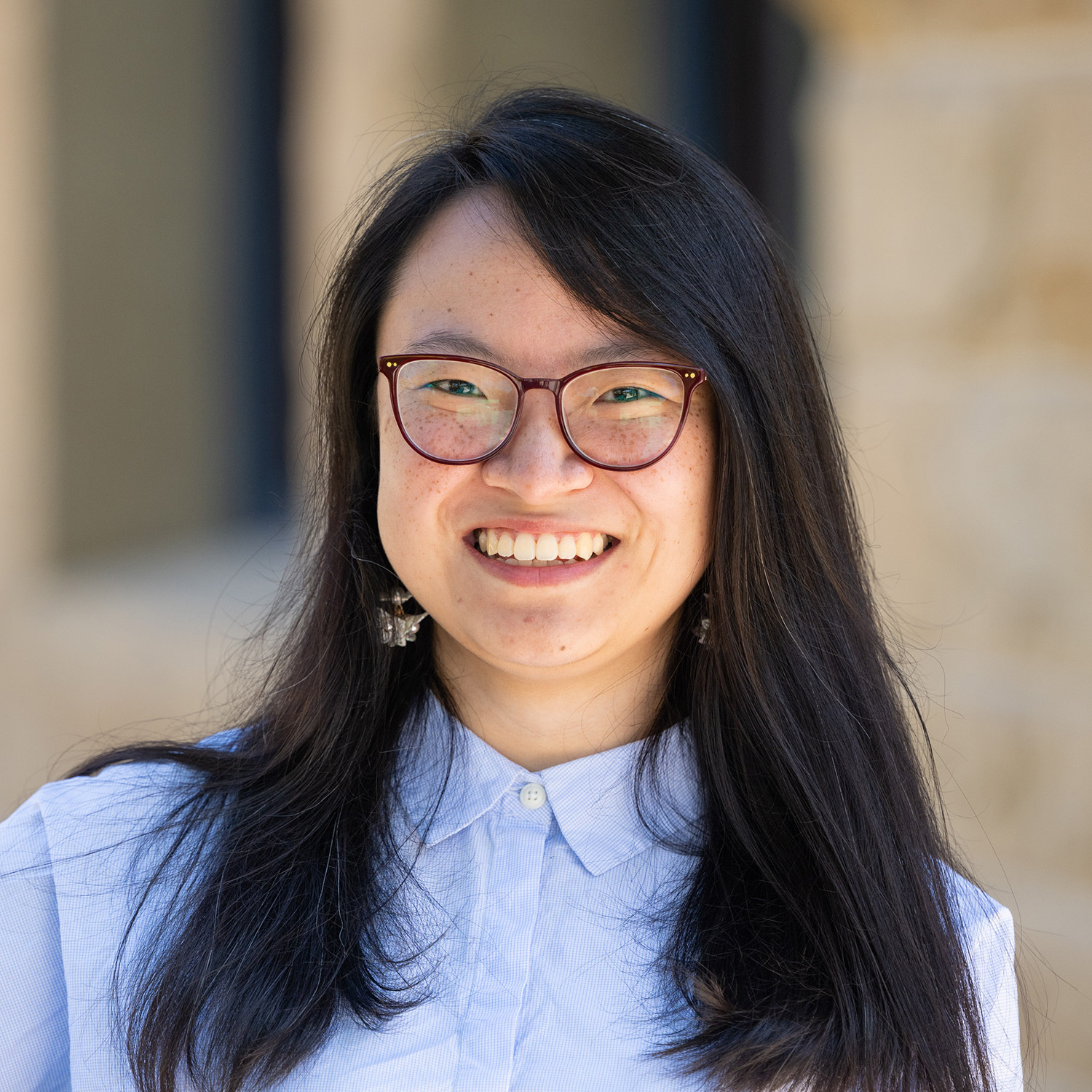
Haoxue Yan | Alex Johnson
Haoxue Yan is a lecturer in materials science and engineering. She is recognized for her distinctive and exceptional contributions to undergraduate education and the quality of student life. She shows dedication to undergraduate teaching, including reviewing and revising undergraduate learning goals and curriculum alignment. She is described as a dedicated, generous, and empathetic advisor to undergraduates who helps formalize the advising structure to ensure accessibility for all students. Her collaborations in her department and across the university ensure ongoing support for first-generation/low-income (FLI) students. She also undertakes extensive and technologically challenging renovations of teaching laboratory facilities to enhance learning opportunities.
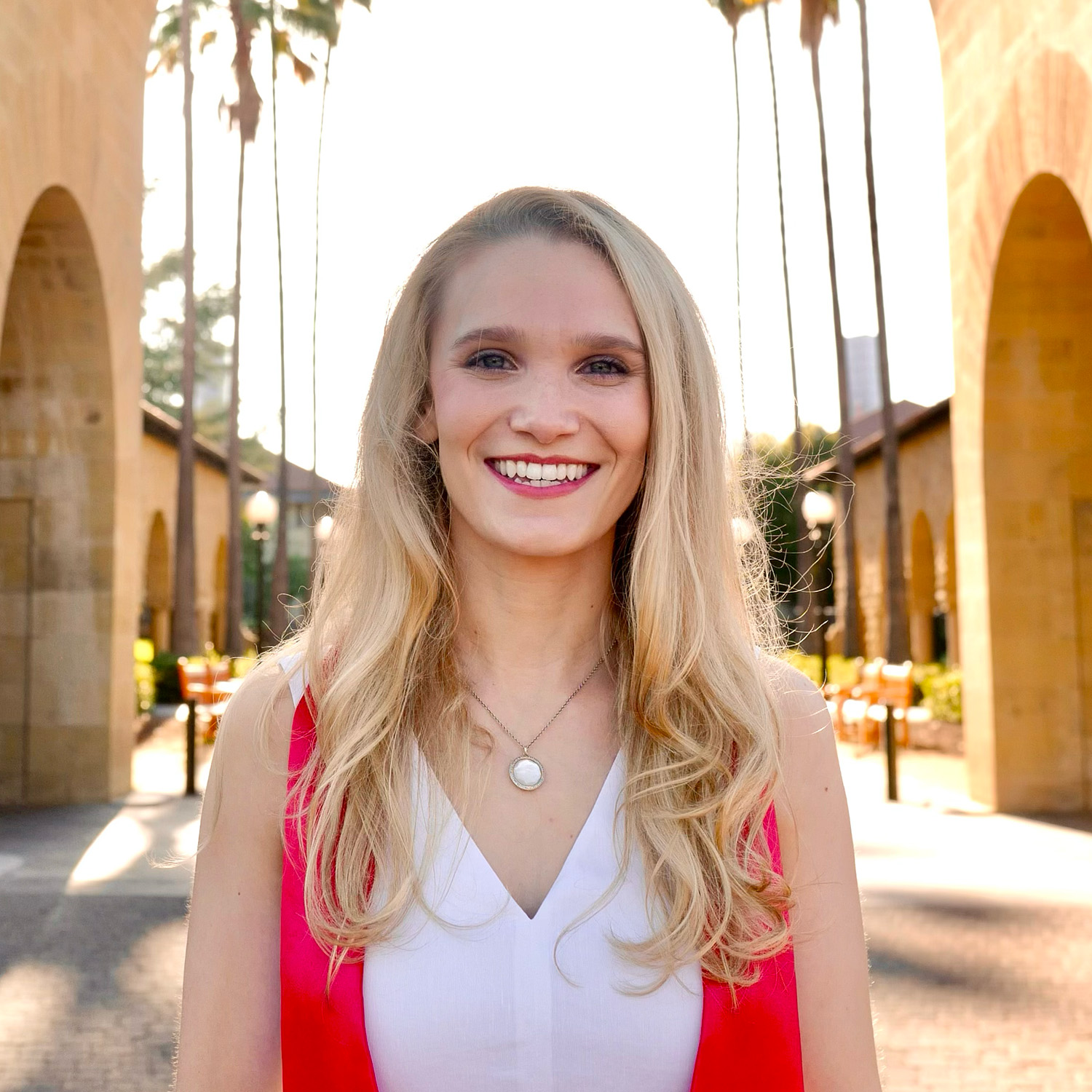
Ria Calcagno | Nicole Domingo
Ria Calcagno is a coterminal student pursuing a master’s degree in computer science and a bachelor’s degree in political science. Calcagno is recognized for her efforts in creating a more inclusive and welcoming campus environment, particularly for people with disabilities. She built the Stanford Disability Alliance into a vibrant hub of advocacy, support, and empowerment for the disabled community at Stanford. Calcagno also led the Disability Access and Barriers Study Group in investigating the issues and experiences of students with disabilities and recommending solutions to address institutional barriers. This foundational work laid the groundwork for the Disabilities Task Force. Calcagno collaborated with administrators to study the challenges students face in receiving accommodations, navigating departmental and instructor issues, and accessing campus resources. Her work directly resulted in policies ensuring students with disabilities do not pay more for accessible housing and in the creation of a new Associate Vice Provost for Accessible Education role. Calcagno has demonstrated an unwavering commitment to fairness and accessibility, embodying the principles of equity central to Stanford’s mission. She has shown a unique combination of patience and persistence, leading to far-reaching and exceptional contributions to undergraduate life.
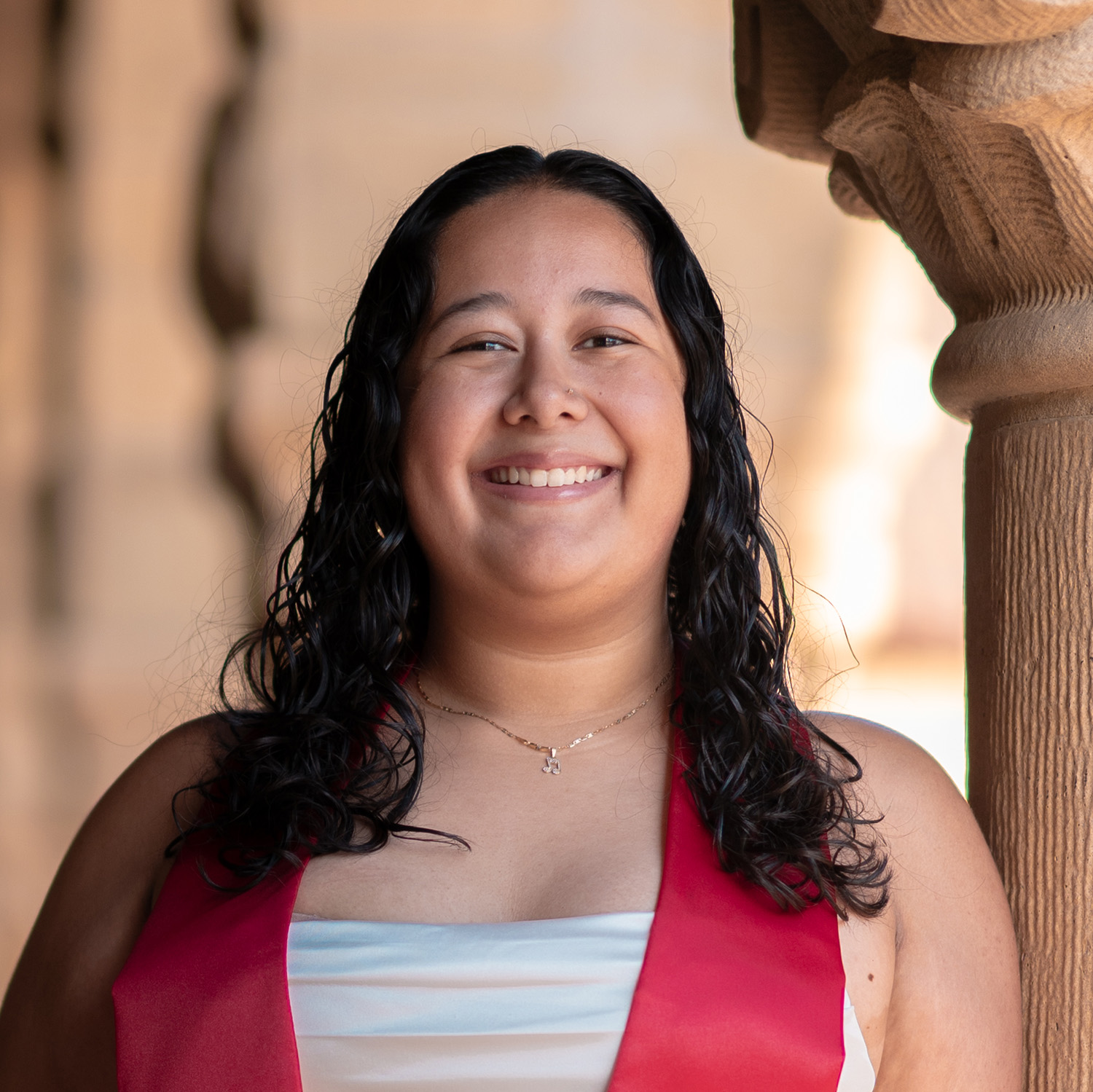
Selaine Rodriguez | Long Pham
Selaine Rodriguez is a coterminal student pursuing a master’s degree in computer science; she has conferred a bachelor’s degree in computer science and a minor in education. Rodriguez is recognized for her unwavering commitment to academic excellence and student success that fosters community and a culture of inclusive excellence. She has served as a resident assistant, participated in the Stanford Society of Latinx Engineers (SOLE), and worked with the Stanford Summer Engineering Academy and the IDEAL pedagogy team. Rodriguez also served as a section leader through the CS198 program, and later as a course assistant for the Computer Science Department. She developed accessible teaching practices that promote belonging for students and initiated and strengthened tutoring, mentoring, and networking opportunities that help her peers grow confidence. Her dedication to supporting underrepresented CS students includes founding FLI office hours and SOLE LaIR. Her efforts to secure resources and build collaboration lead to a more just world where all students have the support they need to thrive.
Walter J. Gores Award winners
The Walter J. Gores Award is the university’s highest award for excellence in teaching. It recognizes faculty and teaching staff who have made special contributions to teaching in its broadest sense, including lecturing, tutoring, advising, and discussion leading.
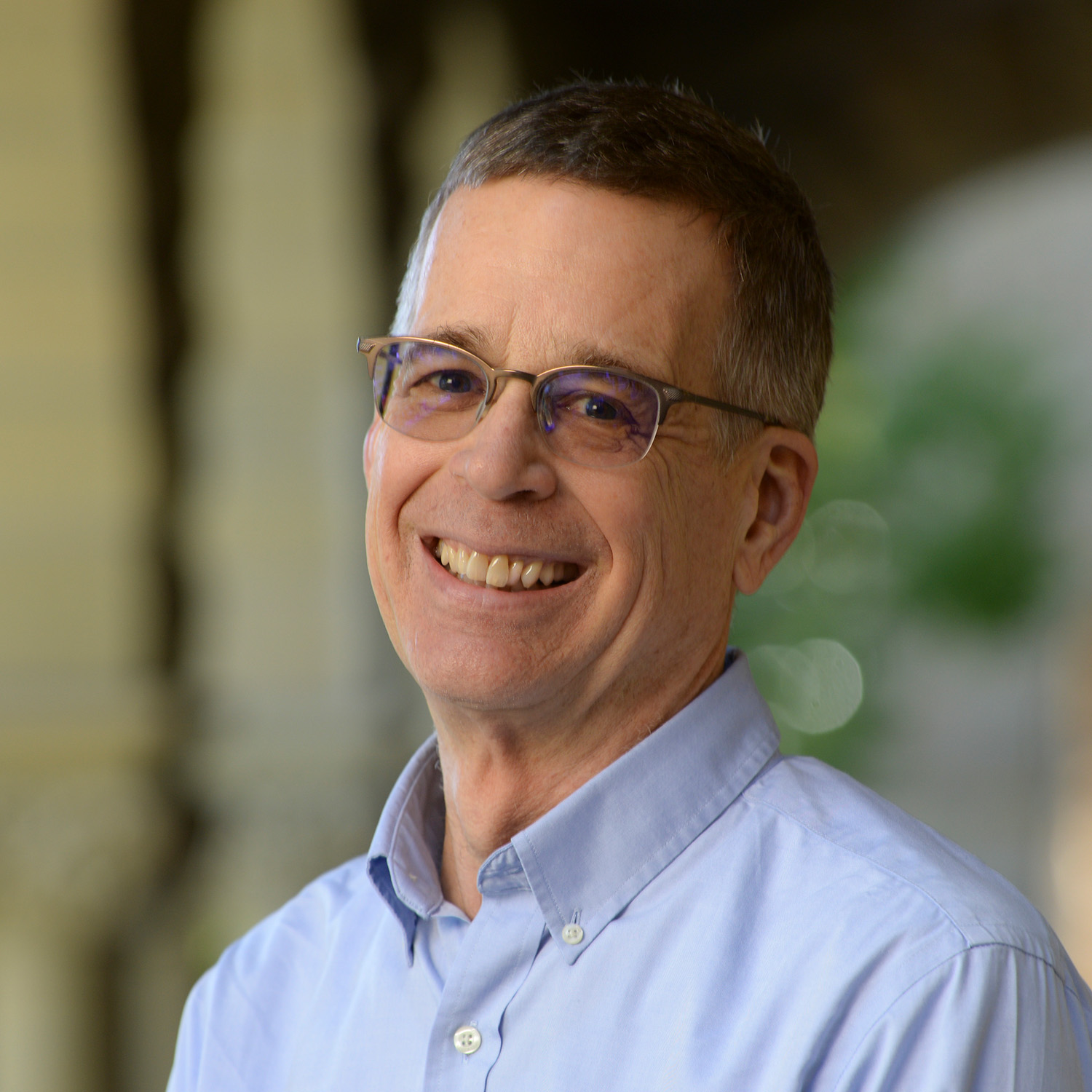
Stephen Luby | Rod Searcey
Stephen Luby is the Lucy Becker Professor in Medicine and senior fellow at the Woods Institute for the Environment and the Freeman Spogli Institute for International Studies. He is recognized for excellence in teaching at the highest level, for his tireless devotion to helping students understand the cross-disciplinary nature of the challenges at the intersections of environmental science, public health, and policy, and for creating a space where all learners can thrive and find their voices. Luby is committed to mentoring Stanford students and teaching them to establish equitable, mutually beneficial, cross-cultural collaborations with international colleagues at low-resource institutions. He instills in his students a life-changing passion for asking questions in public health and policy and environmental science. He is a lifelong learner who humbly learns from his students to adapt and evolve his teaching.
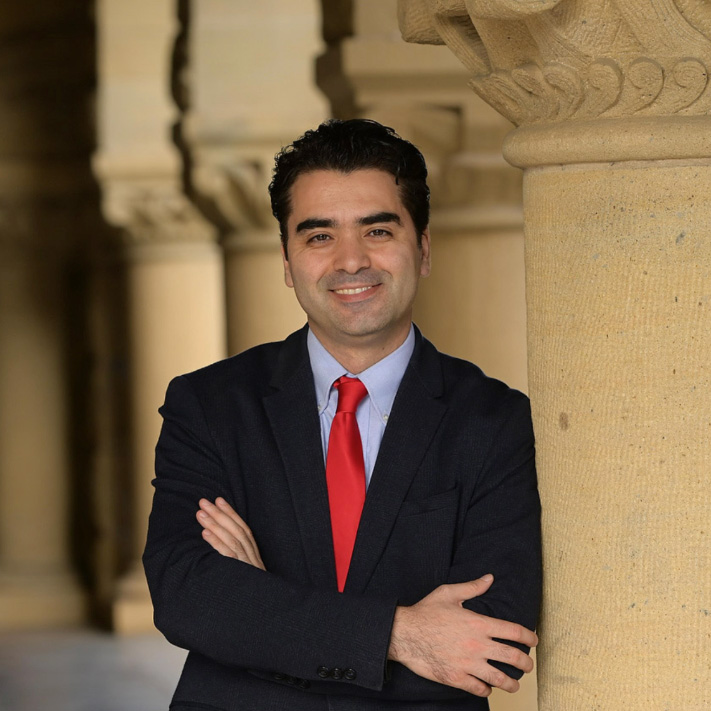
Amir Bahmani | Chris Alleyne-Levy
Amir Bahmani is a lecturer in computational biology and genetics and director of the Deep Data Research Center (DDRC). He is recognized for excellence in teaching and his dedication and empathetic advising of students at all levels, transforming the educational experience at Stanford. He has made exceptional contributions to Stanford’s educational ethos, particularly through his innovative teaching methodologies, his pivotal role in bridging critical interdisciplinary gaps, and an unwavering commitment to student success. Bahmani is also recognized for co-founding the course Cloud Computing for Biology and Healthcare and developing the Stanford Data Ocean project, which integrates cutting-edge technology with education.
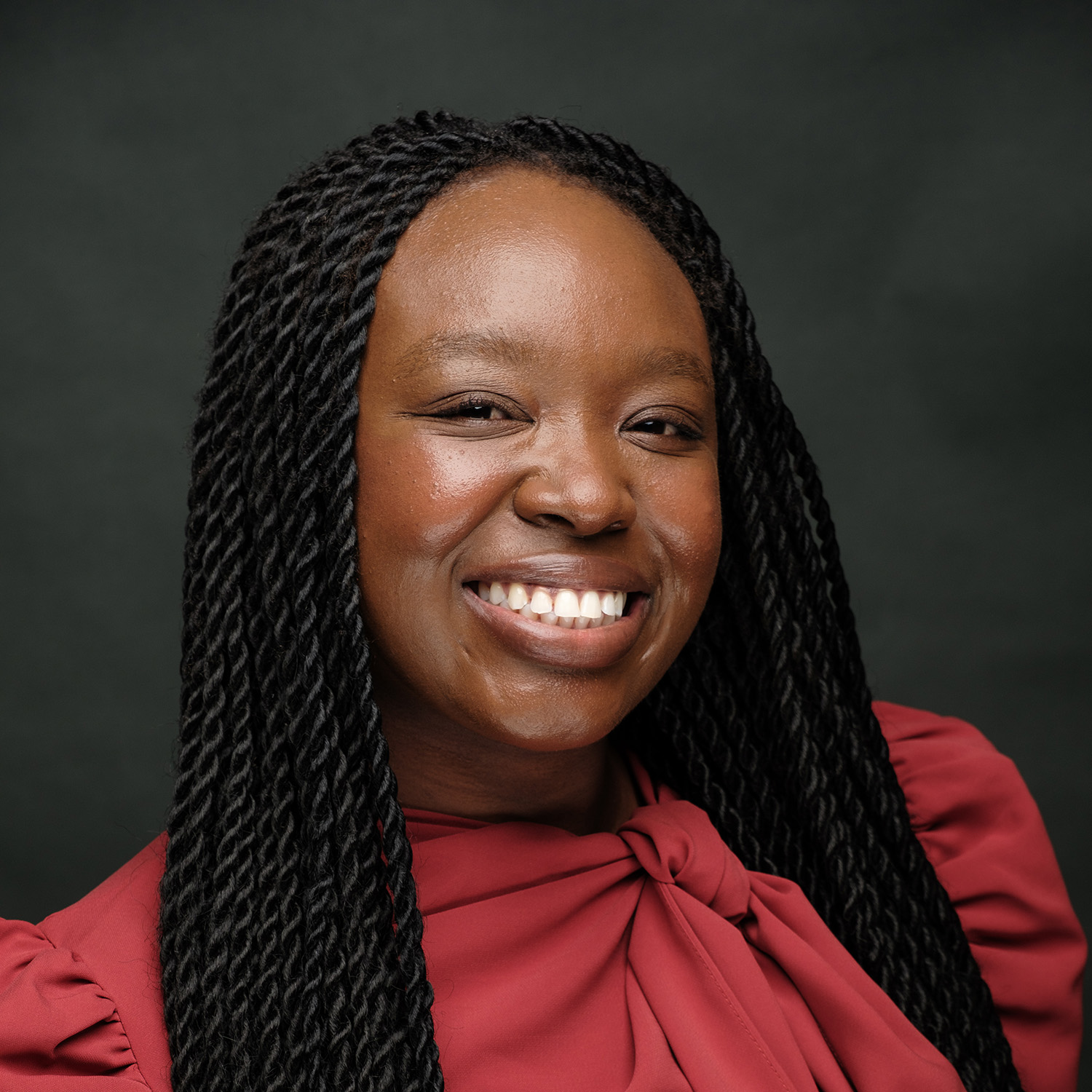
Kemi Oyewole | Courtesy Kemi Oyewole
Kemi Oyewole is a PhD candidate in education policy and organizational studies at the Graduate School of Education. She is recognized for her inspiring teaching that empowers students to build belonging and become compassionate and socially conscious leaders. For three years, she served as the graduate fellow in the Public Service and Civic Engagement Theme House, providing leadership and developing the vision for a residential community that promotes service and provides meaningful learning and engagement opportunities. She has assisted in the redesign of the Policy, Organization, and Leadership Studies program in the Graduate School of Education, developing course content and curating instructional materials to make the abstract more concrete, practical, and relevant. Her innovative course design and inspired teaching of the Pathways of Public Service course give voice to diverse perspectives. She has mentored and connected students with opportunities that fit their talents and aspirations and nurture their growth as leaders.
